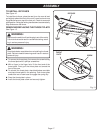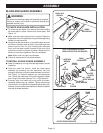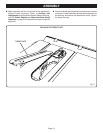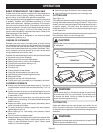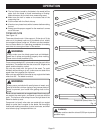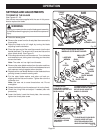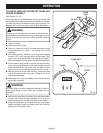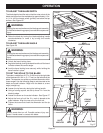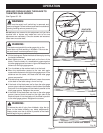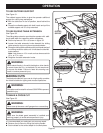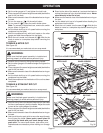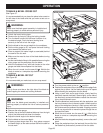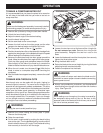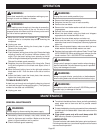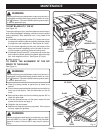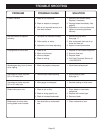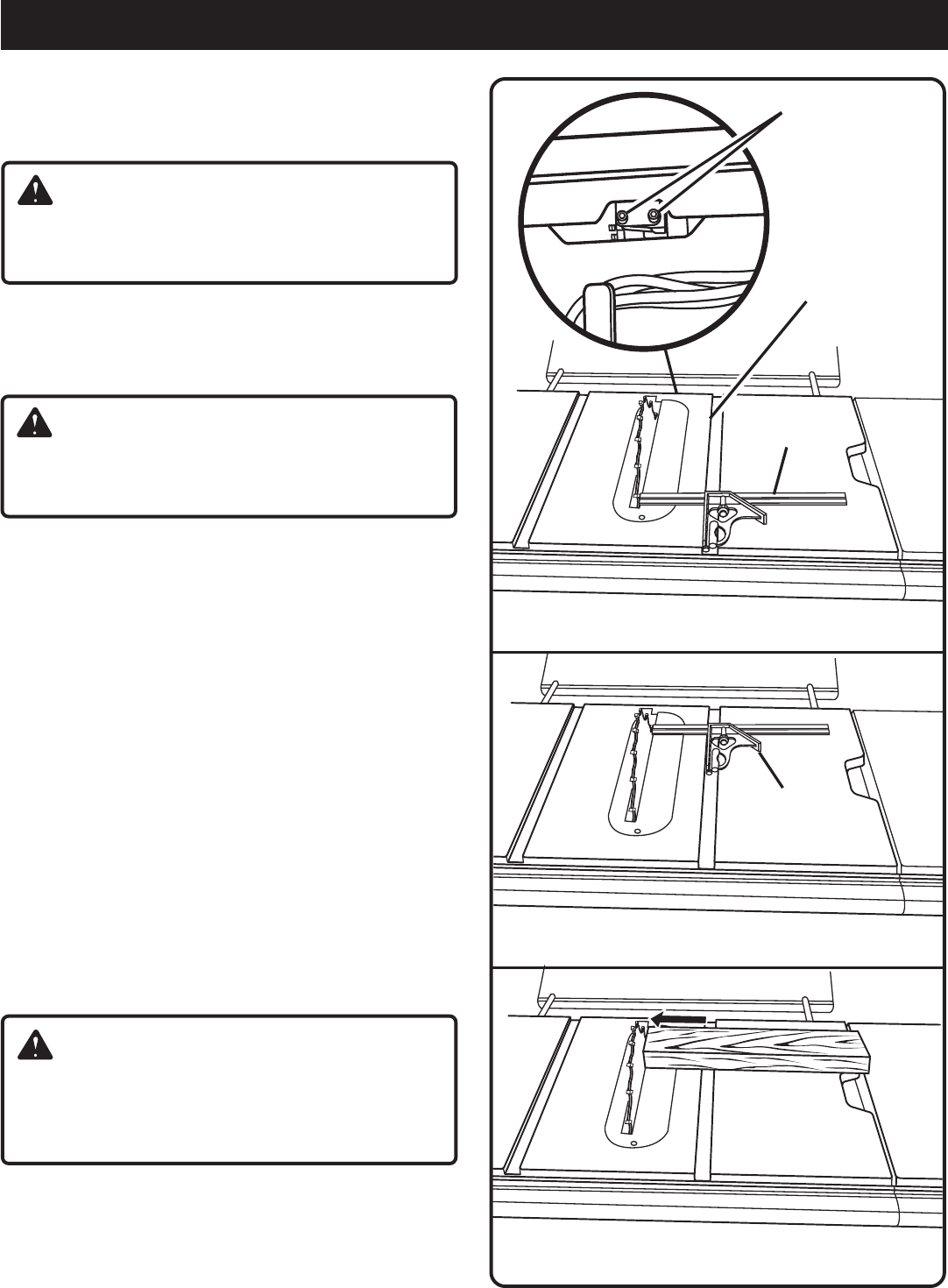
Page 25
OPERATION
HEELING (PARALLELING) THE BLADE TO
THE MITER GAGE GROOVE
See Figures 28 - 30 .
WARNING:
Make sure the switch is off, switch key is removed, and
saw is unplugged. Failure to do so could result in accidental
starting causing serious personal injury.
Do not loosen any screws for this adjustment until you have
checked with a square and made test cuts to be sure
adjusments are necessary. Once the screws are loosened,
these items must be reset.
WARNING:
The blade must parallel the miter gage slot so the
wood does not bind resulting in kickback. Failure to do
so could result in serious personal injury.
Lift the blade guard. Raise the blade all the way by turning
the height handwheel.
Mark beside one of the blade teeth at the front of the
blade. Place the body of a combination square against
the miter gage groove as shown in figure 28. Measure the
distance to the right gage groove.
Turn the blade so the marked tooth is at the back.
Move the combination square to the rear and again
measure the distance to the right miter gage groove. If the
distances are the same, the blade and the miter gage
groove are parallel.
If the distances measured are different, loosen the screws
at the back of the table using a 4 mm hex key.
If the back of the blade was too far from the miter gage
groove, place a block of wood on the left side of the blade
and push it into the blade until the blade is parallel to the
miter gage groove. Retighten the screws.
If the back of the blade was too close to the miter gage
groove, place a block of wood on the right side of the
blade and push it into the blade until the blade is parallel
to the miter gage groove. Retighten the screws.
WARNING:
To reduce the risk of injury from kickback, align the rip
fence to the blade following any blade adjustments.
Always make sure the rip fence is parallel to the blade
before beginning any operation.
COMBINATION
SQUARE
SCREWS
COMBINATION
SQUARE
RIGHT MITER
GAGE GROOVE
BLADE TOO CLOSE TO MITER GAGE GROOVE
Fig. 30
Fig. 29
Fig. 28



